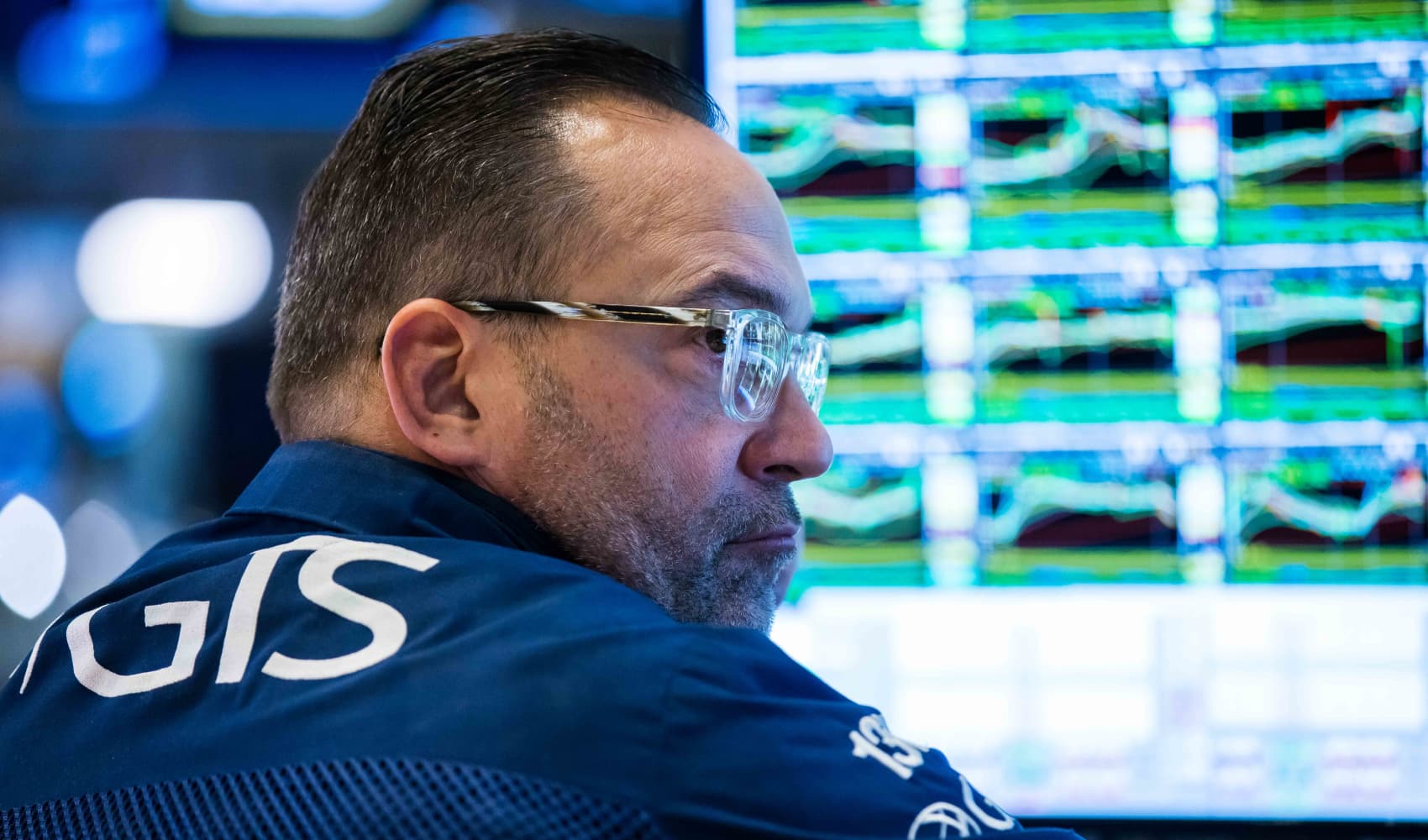
A trader works on the floor of the New York Stock Exchange.
This report is from today's CNBC Daily Open, our international markets newsletter. CNBC Daily Open brings investors up to speed on everything they need to know, no matter where they are. Like what you see? You can subscribe here.
What you need to know today
Fizzling out
Wall Street's attempts to recover from Monday's sell-off ran out of steam. The Dow Jones Industrial Average surrendered a 480-point gain to close 234 points lower. The S&P 500 retreated 0.77%, while the Nasdaq Composite experienced a sharper decline of 1.05%. Technology stocks were at the forefront of the reversal, as Nvidia shed 5%, Tesla dropped 4.4% and Super Micro Computer plummeted 20% following disappointing fourth-quarter earnings. Meanwhile, the yield on the 10-year Treasury edged higher and U.S. oil prices rose over 2% amid escalating tensions in the Middle East.
Write down
Warner Bros. Discovery's stock dropped more than 6% in extended trading after it reported a $9.1 billion write-down on its TV networks and missed analyst estimates on second-quarter revenue. The charge reflects the declining value of traditional TV networks as customers flee and advertisers opt to spend on digital and streaming instead. Revenue at its TV networks — which include TBS, TNT, Discovery and TLC — was down 8% to $5.27 billion. However, the company's streaming business Max added 3.6 million subscribers during the quarter, bringing its total global streaming customers to 103.3 million.
Recession on horizon
JPMorgan Chase CEO Jamie Dimon still believes that the odds of a "soft landing" for the U.S. economy are around 35% to 40%, making recession the most likely scenario in his mind. "There's a lot of uncertainty out there," Dimon told CNBC. "I've always pointed to geopolitics, housing, the deficits, the spending, the quantitative tightening, the elections, all these things cause some consternation in markets."
King of T-bills
Warren Buffett's Berkshire Hathaway has accumulated $234.6 billion in Treasury bills, surpassing the U.S. Federal Reserve's holdings. The move comes as Buffett builds a massive cash reserve, fueled by selling stocks including Apple. The Fed remains a significant holder of Treasury securities overall, but Buffett's focus on short-term T-bills reflects a cautious approach amid market uncertainty.
Asia markets mixed
Markets in the Asia-Pacific region were mixed with tech stocks leading declines. Renesas Electronics, Taiwan Semiconductor Manufacturing Corp and SK Hynix fell 2.5%, 2.6% and 3.1%, respectively. Japan's Nikkei 225 slid 0.7% as the Bank of Japan revealed members discussed more rate hikes at its July meeting. Hong Kong's Hang Seng index and mainland China's CSI 300 both reversed losses, gaining 0.9% and 0.3%, respectively. South Korea's Kospi lost 0.9% and Australia's S&P/ASX 200 dipped 0.2%.
Money Report
[PRO] August volatility
U.S. stock markets experienced their worst day since September 2022 on Monday, which is not unusual as August is often the S&P 500's most volatile month. Here's how stocks usually trade in August.
The bottom line
Feeling out of the loop? We'll catch you up on the Chicago news you need to know. Sign up for the weekly Chicago Catch-Up newsletter.
The Nikkei 225 continues to rebound from its massive sell-off on Monday when the index experienced its worst drop since 1987. On Wednesday, the yen weakened sharply after Bank of Japan Deputy Governor Shinichi Uchida stated that the central bank won't raise interest rates while "financial markets are unstable."
These comments also offered some relief to Wall Street at the start of trading on Wednesday, as the unwinding of the yen carry trade has been a key factor in market volatility this week. Interestingly, no one knows how big the carry trade is, which CNBC's Bob Pisani suggests is creating complications for global markets. Additionally, CNBC's Sam Meredith writes that Fed interest rate cuts could worsen the situation.
Ken Okamura, Japanese equities portfolio manager at Neuberger Berman, attributed market volatility to the BOJ's decision to hike interest rates and reduce bond purchases, coupled with the governor's more hawkish-than-expected tone in the post-meeting conference.
"We do still anticipate, given the large amounts of trades that have still been left to be unwound in the yen carry trade, there could potentially be some volatility down the line," Okamura told CNBC.
Okamura emphasized that the root cause of the recent unwinding and central bank actions is the anticipated exit of the Japanese economy from the "lost decades and the economy is about to normalize."
"This is actually a positive thing. It's the biggest thing that has happened to Japan in more than 30 years."
Before Wall Street's rebound from Monday's steep sell-off reversed on Wednesday, Chris Verrone, head of technical and macro research at Strategas, observed that the market is still in a precarious position, lying in a "no-man's land" since last Thursday's lows.
"I am not blown away with the first bounce attempt from [the] S&P 500 yesterday, as breadth came in a tepid +2.6 to 1 advance/decline," Verrone noted.
Verrone advised investors to "tread lightly with the first bounce attempt," suggesting that more significant corrections are likely to occur in the coming months. He explained, "A bottoming sequence typically takes some time to come together, and we can't think of many correction lows in August."
— CNBC's Hakyung Kim, Brian Evans, Alex Sherman, Yun Li, Hugh Son, Lillian Rizzo, Spencer Kimball and Dylan Butts contributed to this report.






